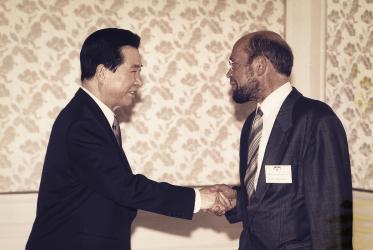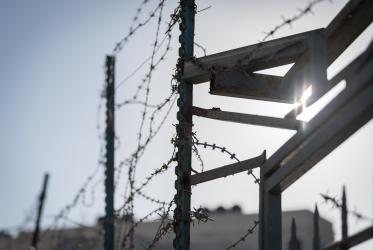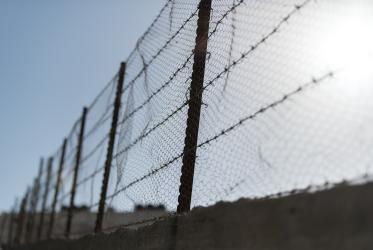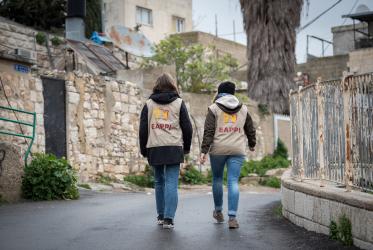Displaying 21 - 40 of 363
Que peuvent faire les Églises pour prévenir l’esclavage moderne?
26 February 2024
What can churches do to prevent modern slavery?
22 February 2024
Women and children in Gaza bearing brunt of ongoing war
16 January 2024
Ellyanne Chlystun-Githae Wanjiku to COP28: “listen more to children”
13 December 2023
Violations of human rights escalate in Masafer Yatta, Jerusalem
30 November 2023
Violence against Palestinians is rising in the West Bank
16 November 2023
«L’occupation ne peut durer éternellement»
30 October 2023
















